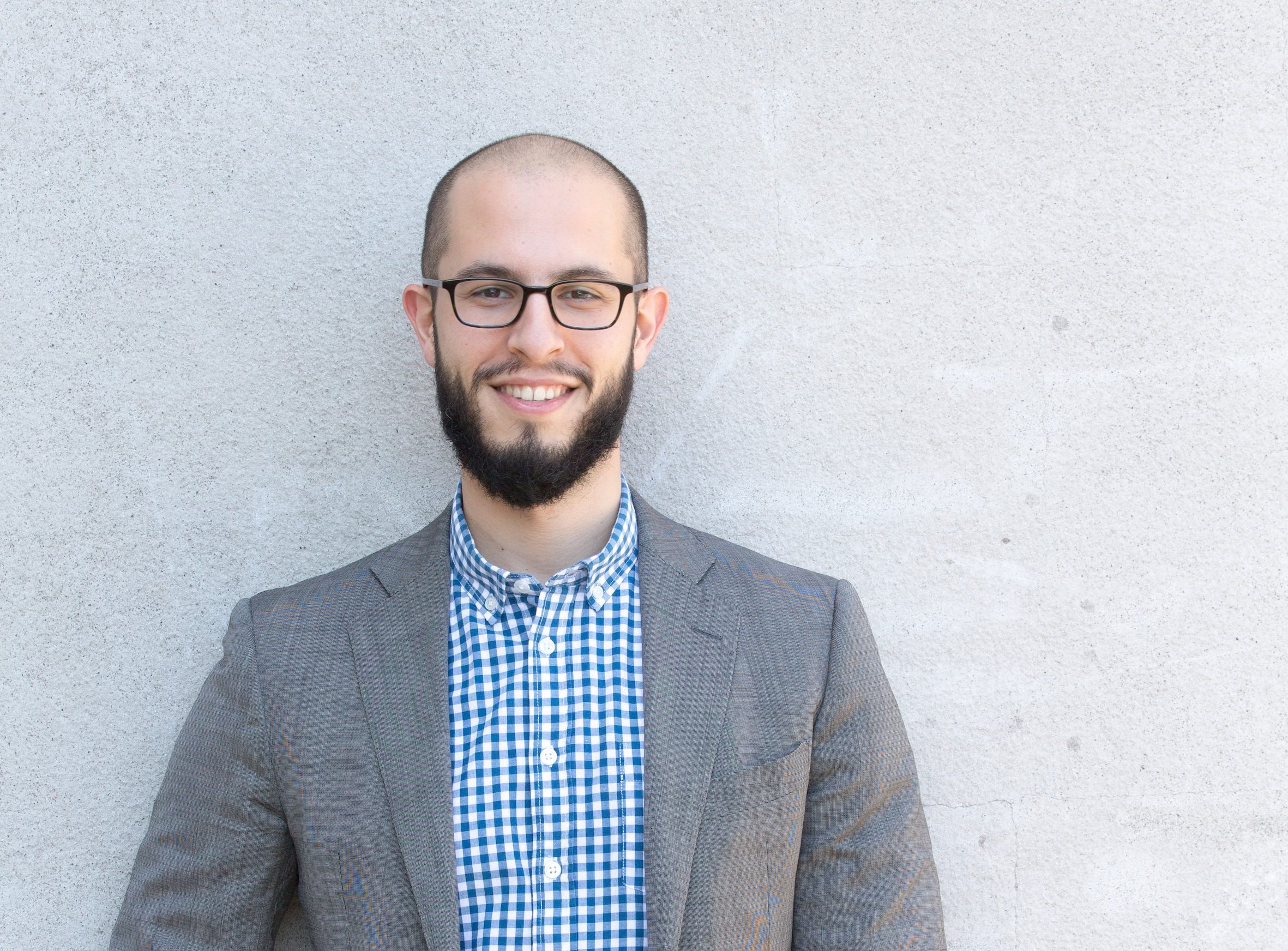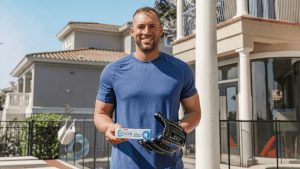In this weekly series, we profile entrepreneurs approaching the top of their game, and ask them how they got there. This week, co-founder and CEO of Goodfood, Jonathan Ferrari answers a few quick questions.
Montreal-based Goodfood, founded in 2014, has a mission to help Canadians “do dinner better.” Delivering over 2 million meals per month from coast to coast, the company is a shining example of Canadian success.
Here, Ferrari talks about impacting customer’s lives and being present in every Canadian kitchen one day.
What do you enjoy most about the industry you’re in?
It is the intersection of two of my greatest passions – food and technology. Big changes are happening with the way Canadians are buying food and grocery shopping, and it is exciting to see that my team and company are helping establish the future food ecosystem in Canada.
With the experiences you’ve had in business so far, how has your definition of success changed over the years?
At first, much like for many young, ambitious business people, success was about money and prestige. However, I have found over the past few years is that it is much more about contributing to the growth of people on my team, positively impacting the lives of customers and shaping society in a bigger way.
What was challenging throughout this process with Goodfood?
The greatest challenge over the past five years, from initially launching the company to now trading on the Toronto Stock Exchange (FOOD), has been keeping all of our stakeholders on the same page.
When we were only three co-founders, we were all on the same page when making decisions, since we were running the business together. We did everything from packing boxes, to shopping at farmers markets and doing deliveries ourselves. Now the company has grown to over 1,500 employees and the pace of change is massive. It is a balancing act to keep everyone (employees, board of directors, investors and research analysts) focused on the same vision, company culture and goals.
What advice do you have for someone just starting off in a similar field who wants to pursue a little bit of everything and not feel overworked or overwhelmed?
At Goodfood, we analyze and talk about how 80 percent of our results and success, come from 20 percent of our effort. The challenge is figuring out what part of our collective effort contributes to the 20 percent that has the biggest impact.
As a result, we have developed a process where the 10 members of our executive team meet every day from 11:59 am -12:14 p.m. to discuss one piece of good news and our top priority for the day. We have found this to be instrumental in keeping accountable to each other and laser focused on accomplishing goals.
With this in mind, for someone who is starting out in a new job or startup, it is important to employ this same practice of each morning – writing down your top priority and accomplishing it. Even if you are being pulled in multiple directions and putting out fires, everyday can be counted as a success by crossing off that top priority task.
Instagram will load in the frontend.
What is one trait you have, that you find has attributed to your success?
Perseverance is by far the trait I have relied on the most. It has helped me overcome every roadblock and to know that there is never a lack of resources, but a lack of resourcefulness. It has also taught me not to dwell on the hundreds of investors who have turned down Goodfood and suppliers who didn’t believe food would ever be delivered through the mail.
What lessons have you learned?
In the early days of the business, the most important lesson for me was following The Lean Startup‘s model of minimum viable concept for launching a product or service. This is based on the idea that you should be able to start shipping a product quickly to get consumer feedback. As a high achiever and perfectionist, it was difficult to do that when I was nervous to deliver to consumers something that had not been perfected. However, without consumer feedback, you could be working in a direction that is not valuable for the customers. Looking back, when we started, we did not have a good packaging (we had a medical grade material), iPhone photography and we did not have a state-of-the-art, automated production facility. Using the minimum viable conception model helped us get to the market quickly and receive timely feedback so we could perfect our offering.
Who are your some of your role models?
I have been very inspired by the Zappos founder and CEO, Tony Hsieh, and his approach to a customer-centric e-commerce business. The way Hsieh delivers customer service to all shoppers was something we have strived to emulate. Now, with our Member Happiness team, we are consistently aiming to unlock value for our customers, which is essential in e-commerce where face-to-face interactions do not exist.
For inspiring to be quick and adaptable in reaction to changing consumer preferences, I am very inspired by CNN Founder, Ted Turner. Turner invested in the 24-hour news channel when no one thought there was enough news to share for that length of time. Now, over two decades later, it is an iconic & highly profitable news business.
Lastly, Hamnett Hill has been pivotal in the progression of my career and success of Goodfood. Hill was the founder of Radial Point, a consumer software and one of the first investors in Goodfood. He is an incredible mentor and business advisor, and is currently on the Goodfoods board of directors where he has been fundamental in strengthening our teams, helping build our vision and communicating with investors.
Instagram will load in the frontend.
If there was one piece of advice you could have given yourself when you started off, what would it be?
Relax! I mean it in the sense that most things I was worried about in the early days caused a lot of fear and stress, where – as it is with most things we worry about – they did not often end up happening. In fact, the things I was not anticipating were the biggest problems. I realize now that having a good time is essential, because it is the passion you will need to breakthrough all the challenges you are going to face.
What is one thing, non-work related, that helps you stay balanced each day?
There are three things that help me contribute daily to the building blocks of balance and happiness. The first is my fiancée Sarah, then our nine-month old puppy Louis and last is fitness. Sarah is the person in my life that helps me stay balanced. She helped institute a rule in our household that we do not work on Saturdays. I used to work seven days a week, whereas now I only work six. In terms of daily workout regimen, I either do yoga, meditate or bike on my Peloton.
What does your daily routine look like?
Like many entrepreneurs, I am not a morning person. I wake up at 8 a.m. to the sound of CNBC on my Sonos speakers. I take my time and enjoy coffee, while reading up on the news. I am usually at the office by 9:30 a.m. if I do not have a breakfast meeting. Then I like to get my most important meetings and work done between 9:30 a.m. to 11:59 a.m. From 11:59 a.m. to 12:14 p.m., we do our daily executive huddle. If I do not have a lunch meeting I will go to the gym during lunch. I get back to the office I typically run through, as much work as possible before going home for dinner with my fiancée. If I don’t go to the gym on lunch I do a Peloton work out before bed.
What makes it all worth it?
I get a ton of satisfaction from hearing from our members on how Goodfood has had an impact on their lives. It is magical for me to hear stories about people who have saved their marriage with fewer arguments over food prep or people who have lost a lot of weight from eating the well-balanced, portion controlled meals in our plans. As a team, we also meet regularly in town halls to share customer feedback, which keeps us a costumer-centric company.
What long-term goals do you have?
For the business – our audacious big goal is to be in every Canadian kitchen every day. We would also like to be one of the few Canadian companies that generate more than one billion each year in sales. For personal – it is about finding unique and genuine ways to focus on an authentic family environment at home and build long-term relationships within the business community.








